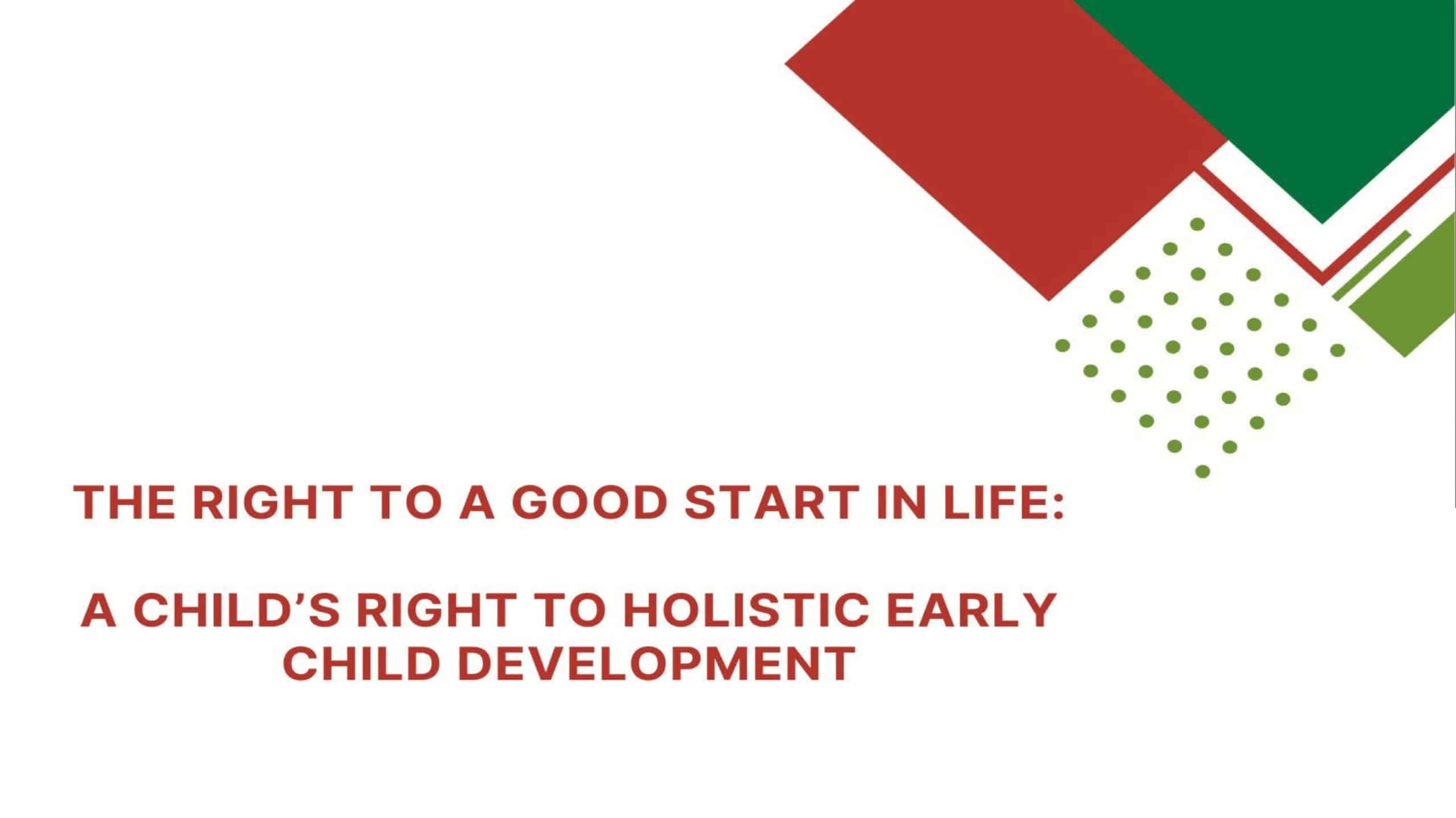Hope and Homes for Children’s advocacy efforts to secure a strong 2025 UN Resolution on Early Childhood Development (ECD) are anchored in our conviction that every child deserves the right to grow up in a loving family. Yet, millions of children remain trapped in harmful institutions.
This September, the United Nations General Assembly (UNGA) will adopt a critical Resolution on Early Childhood Development (ECD), and we, together with our partners and allies are leading the charge to ensure it paves the way towards strong commitments for the end of child institutionalisation and the prioritisation of family-based care systems worldwide.
Hope and Homes for Children, alongside 13 partner NGOs, has launched a new report, The Right to a Good Start in Life, highlighting the vital link between Early Childhood Development (ECD) and family care. The report stresses that nurturing family environments are essential for children’s emotional security, cognitive growth, and overall well-being. It exposes the harm caused by institutionalisation and calls for urgent reforms towards family-based care systems such as foster and kinship care.
Three key points from the report:
- Family life is fundamental for safe and healthy early childhood development and emotional security.
- Institutionalisation causes significant harm to young children and must be eradicated in favour of family-based care.
- Strengthening families through social protection, mental health support, and inclusive services prevents separation and promotes child well-being.
Why Early Childhood Development Matters
The first 8 years shape a child’s future – and their brain development, emotional health, and lifelong opportunities depend on nurturing family care. Yet:
- 5.4 million children live in institutions globally, often suffering developmental delays, trauma, and isolation.
- Children deprived of family care during this critical period miss out on the foundational support that nurturing family environments provide
- Institutionalisation in the early years often results in developmental harm, as it lacks the secure emotional attachments and personalised care essential for healthy cognitive, social, and emotional growth.
- This can have lasting negative effects throughout childhood and beyond, including increased vulnerability to stigma, discrimination, and poor mental health outcomes.
The 2025 UN ECD Resolution is a turning point.
We are fighting to ensure it:
- Recognises institutionalisation as a violation of children’s rights.
- Commits governments to reforming child care systems
- Supports sustained investment in family support measures to keep families together.
Our Advocacy: From Grassroots to the UN
1. Influencing Global Policy
We work with UN Treaty Bodies like the Committee on the Rights of the Child (CRC) to advance the care reform agenda, and hold governments accountable. Recent wins include:
- 2024 HRC Resolution on Inclusive Social Protection.
- 2019 UNGA Resolution on Children Without Parental Care.
2. Amplifying Lived Experiences
At the March 2024 Human Rights Council Annual Day on the Right of the Child side-event we co-hosted with partners, young people who grew up in institutions shared how family separation impacted them, powering our call for care reform.
3. Launching the Evidence: The Right to a Good Start in Life
Key findings from our new report (endorsed by 14 organisations):
- Family bonds build resilience, learning, and emotional security.
- Institutions harm children, even those with “good or quality” conditions.
- Solutions exist: Foster care, kinship care, and parent support programs work.
2025: A Pivotal Year for Care Reform
At a time when ODA cuts and de-prioritisation of child rights, development and cooperation risk putting the lives of millions of children at risk, we must redouble our efforts to progress and advance our cause. Despite the complex international landscape, there are promising opportunities:
September 2025 – UNGA Resolution
We are advocating with partners for the ECD Resolution to:
- Link ECD and family care explicitly.
- Support the Global Charter on Care Reform, set to be launched at UNGA
November 2025 – World Social Summit
We will advocate for:
- Care reform in the SDGs.
- Funding shifts from institutions to family support.
November 2025 – South Africa’s Leadership & G20
With the G20 hosted in South Africa—a country advancing ECD policies—we’re seizing this moment to drive global action.

